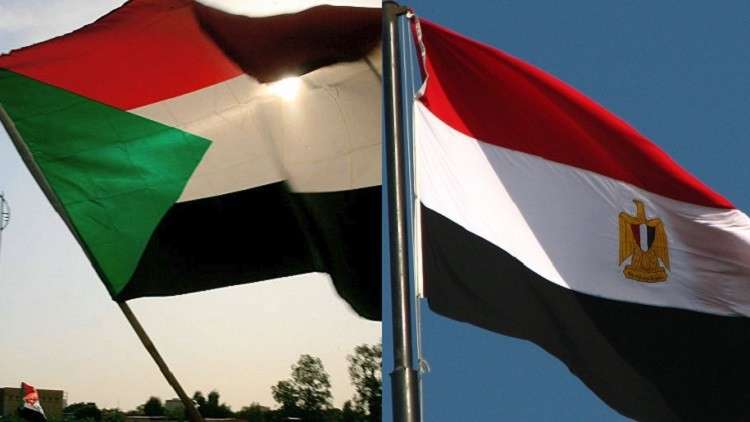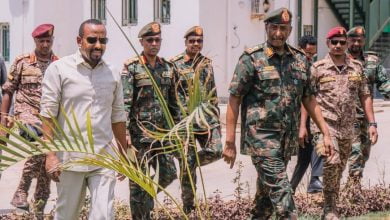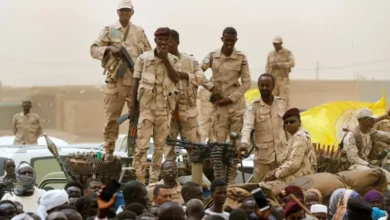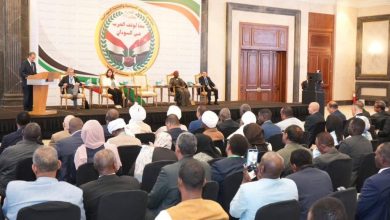Competing Initiatives: Genuine Attempts or Blocking Egypt’s Role in Sudan’s Crisis?

Cairo – almohagig – Sabah Musa
From Geneva to Cairo, Addis Ababa, and London, various invitations are flooding in for political forces and civil society in Sudan, seeking a resolution to the political crisis and war that has entered its second year with no solution in sight. Are these initiative proponents trying to defuse the crisis and stop the war in Sudan, or are they racing to achieve political goals specific to each party?
Conflict of Initiatives
Noticeably, all these invitations came after the Egyptian call, sharing the same agenda and invitees, raising questions about the purpose of these announcements. Is there coordination with Egypt, or are these attempts to undermine and thwart Egypt’s role in Sudan? What are the interests of these entities, whether European or African, in cornering Egypt’s role in Sudan as they did before the war? Does all this contribute to resolving the crisis, or is it a hidden struggle complicating the crisis and limiting any real role in solving it?
Competing Is Unacceptable
Dr. Amani Al-Tawil, Director of the African Program at Al-Ahram Centre for Political and Strategic Studies, asserted that there is no need for all these forums after 14 months of war in Sudan. Al-Tawil told “almohagig” that after this period of war, we have identified the parties to the political process and its nature and have come to the conviction that coordination is necessary. She added that these initiatives should not compete with Cairo or place obstacles in its path.
Al-Tawil continued: If there is a genuine will for resolution, there must be agreement on a single initiative and coordination with it, referring to the African Union initiative and Museveni’s chairmanship of the committee to resolve the crisis. She pointed out that considering the deployment of African forces in Sudan through this committee would facilitate Sudan’s inclusion under Chapter VII of the United Nations. She confirmed that if this step is taken, it will expand the conflict in Sudan, recalling the French intervention in Mali, the Ethiopian intervention in Somalia, and the United Nations in Darfur previously.
Al-Tawil warned that this would open the door for jihadist groups to develop extremist rhetoric as a platform for extremist organizations. She saw the chances of success for the Egyptian initiative as reasonable, justified by the current Sudanese perception that the solution lies in Cairo, as well as the consideration of ending the war, the large number of Sudanese in Egypt, and Egypt’s non-harmful interests in Sudan, stressing the convergence of strategic interests between the two countries.
Egypt Is the Best
Prominent leader of the Freedom and Change Democratic Bloc, Mubarak Ardol, welcomed all efforts that did not harm the crisis and did not side with any party, exacerbating the war in the country. Ardol told “Almohagig” that they have doubts and concerns about the African Union’s role, especially with countries within it supporting the Rapid Support Forces militia, referring to the previous role of the Union before the war in the trilateral mechanism that sponsored the framework agreement.
He added: But we count on the Egyptian initiative because Cairo’s position is firm against selective dialogue, and it seeks comprehensive dialogue, stressing the need for all efforts to be united so that genuine efforts are not wasted. He said they want a role for neighbouring countries affected by the crisis, foremost among them Egypt, which has an interest in ending the war justly.
Ardol continued: Therefore, we focus on the Egyptian invitation and attend other invitations so that it is not said that we are against peace, but we go to present our vision. He added, “We trust the Egyptian role and see it as the closest to the crisis,” and that solutions through it will be clear, explaining that the differences lie in selectivity and the choice of parties and topics. Therefore, it is better for Egypt to lead the international efforts, pointing to the Sudanese government’s doubts about the African Union. He said the African Union should reassure the government by lifting the membership suspension and addressing this issue.
Significant Confusion
Dr. Al-Tijani Sisi, head of the Sudanese National Movement Coalition, affirmed that their stance on the multiplicity of initiatives is clear. Sisi told “Almohagig” that the numerous initiatives create significant confusion among political forces, complicating and slowing down solutions. He pointed to the African Union’s invitation, the European initiatives in Geneva, Nairobi, and Austria, and the Egyptian initiative, stating that all these initiatives address the same issue and should be unified.
He added that the Egyptian initiative called for a Sudanese-Sudanese conference, unlike the African Union, which called for something akin to a workshop to identify points of disagreement and consensus on the foundations and agendas that could establish a Sudanese-Sudanese dialogue.
Sisi explained that the Egyptian invitation is different in that it is an inclusive invitation to all political forces.
Sisi added: “We were among the first forces to welcome this invitation, and we believe that Cairo should increase consultations among political forces and blocs on some issues that could lay the foundation for the success of the Sudanese-Sudanese conference.”
Confusion of Efforts
Osman Mirghani, editor-in-chief of Al-Tayar newspaper, considered that there is an overlap between these invitations and the Egyptian initiative. Mirghani told “Almohagig” that the African Union’s invitation is similar to the Egyptian invitation in its goal and participants, including the invitation of Islamists in both initiatives. He added that it is also accompanied by the African Peace and Security Council’s decision and the committee chaired by Museveni to meet with Burhan and Hemeti, expressing his belief that this complicates mediation efforts and gives the army and Rapid Support Forces the opportunity to play all sides.
He believed that these invitations blocked Cairo from being involved in the Sudanese crisis.
Mirghani pointed out that these invitations do not want to give Cairo a chance at a solution, especially since Cairo enjoys good relations with all different political forces. He explained that the African Union’s invitation will be in two rounds, the first in the second week of July, with the second not yet scheduled, predicting the African Union’s failure. He said that the features of the Egyptian initiative are still unclear, and what has emerged so far is only the participants’ welcome, with the agenda and roadmap yet to be announced. He emphasized the necessity for Cairo to conduct preliminary consultations with political forces first and come out with a unified vision at the conference.
Will Not Block
For his part, Sudanese writer and political analyst Faiz Al-Silik saw that the competition over initiatives to resolve the Sudanese crisis would not solve the problem. Al-Silik told “Almohagig” that we should focus on the Sudanese-Sudanese solution, or the real solution, which should be in the hands of the Sudanese themselves.
He added that this does not prevent any regional effort, initiative, or attempt.
He noted that the Egyptian initiative preceded all these invitations, but its agenda remains unclear. He announced his support for the Egyptian initiative, provided it excludes “the National Congress and its remnants,” considering them part of the problem. He said that Egypt has a genuine interest in stopping the war in Sudan, as it is the most affected country by this war, so it is natural for Egypt to propose such an initiative.
Al-Silik continued, stating that the African Union had previously proposed an initiative a year ago to resolve the crisis and called for a meeting between Burhan and Hemeti, but the meeting failed. He emphasized the need to combine all these efforts and go to Jeddah to a ceasefire, stating that dialogue between politicians is important and must come concurrently or after the ceasefire. Therefore, we must start with a ceasefire first, ruling out that these invitations would block Cairo’s role in resolving the Sudanese crisis. He called on Cairo to conduct proactive dialogues with different political forces, understand each party’s desires before holding the conference to ensure its success, and devise a solution to the crisis.





